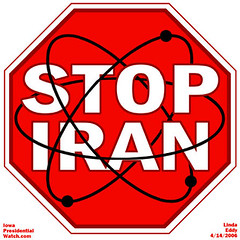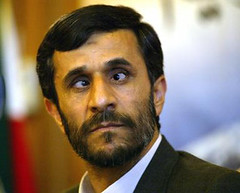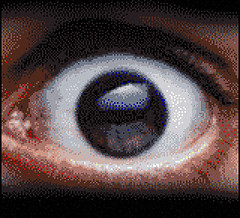Monday, July 14, 2008
KARACHI KIDS PREVIEW
STATEMENT OF IMRAN RAZA REGARDING RELEASE OF AMERICAN CHILDREN FROM PAKISTANI TALIBAN MADRASSA
(Atlanta, GA) - Imran Raza, the director and executive producer of the documentary "Karachi Kids" who discovered up to 80 American children in a Taliban-backed madrassa in Pakistan released the following statement regarding the return of two American children to Atlanta:
I am grateful for the safe return of the two American children from Atlanta from a Taliban- backed madrassa but the mullah claims to have up to 78 more in his institution.
The headmaster comes to the United States once a year and personally recruits American children to enroll in his madrassa. The remaining 78 children must be returned to the United States.
This pipeline to jihad must be closed. Let me be clear - these children do not learn math, or science, or liberal arts. They learn one thing - they memorize over the course of seven years every verse of the Koran coupled with the radical interpretation of their teachers.
This is just the first step in integrating these children back to American society. I am proud we did our part so we could say 'Welcome Home."
It is imperative that Members of Congress and the State Department undertake an accounting of just how many Americans are in the other 20,000 madrassas in Pakistan.
Hundreds remain behind.The Karachi Kids is a documentary about American children in the Jamia Binoria madrassa in Karachi Pakistan. A trailer of the film is available at www.karachikids.com.
Facts About the Binoria Madrassa
Located in Karachi, Pakistan, the Jamia Binoria madrassa was
founded by Mufti Muhammed Naeem and espouses Deobandism -- the religion of the Taliban.
The institution houses over 3,000 students including children from the United States and Canada.
Selig Harrison, the Director of the Asian Program for the Center for International Policy recently gave a speech reafng the link between the Jamia Binoria and the Taliban: "In Karachi, the Jamia Binoria, with some 10,000 students enrolled in eight afted madrassas, displays a banner at its main gate urging Muslims to join the Taliban."
A large number of graduates from the Binoria have become senior es in the Taliban.
Right before 9/11, Osama bin Laden addressed the students emphasizing the importance of jihad.
Mufti claims to have graduated over 100 Americans from his institution and asked what they teach the children, Mufti relied, "Islam, not math or anything else, only Islam."
Subscribe to:
Post Comments (Atom)














1 comment:
Shows Iranian leader as “imam of blood,” writer says
Egypt hits back at Iran with anti-Khomeini movie
Iranian documentary
Strained relations
Iran's Ayatollah Khomeini (L) and Egypt's Anwar Sadat
CAIRO (Moustafa Suleiman, AlArabiya.net)
In response to the Iranian documentary that glorifies the assassin of Egypt’s former president Anwar Sadat, Egypt will make a movie that portrays Iran’s Ayatollah Khomeini as an “imam of blood,” AlArabiya.net has learned.
Mohamed Hassan Al-Alfi, a member of the ruling National Democratic Party and Editor-in-Chief of its mouthpiece Al-Watani Al-Youm, told Al Arabiya that he is in the process of writing the script for ‘Khomeini: The Imam of Blood,’ which will be directed by prominent Egyptian director Mohamed Fadel.
The movie, Alfi said, will spotlight Khomeini's extremist ideas and how they threatened Egypt's security during the first 10 years of current President Hosni Mubarak's rule. It will also show how Khomeini's ideologies were behind the assassination of Sadat.
Grand Ayatollah Ruhollah Khomeini was the political leader of the 1979 Iranian Revolution which overthrew the last Shah of Iran, Mohammad Reza Pahlavi.
Following the revolution, Khomeini became the country's Supreme Leader, the paramount political figure of the new Islamic Republic until his death.
"The movie will show that Khomeini was not an imam of the Muslim faith that promotes peace and condemns violence, but was rather an imam of blood," Alfi said.
Iranian documentary
A week ago, Egypt summoned a senior Iranian diplomat in Cairo over the Iranian documentary, "Assassination of a Pharaoh," which portrays Sadat’s assassination as the killing of a traitor by a martyr.
According to the Iranian film, Sadat was killed for signing the 1978 Camp David Accords that led to a 1979 peace treaty with Israel, the first by an Arab country.
The film was broadcast on Iranian television "in honor of the martyrs of the Islamic renaissance," and deals with "the revolutionary assassination of the treacherous Egyptian president at the hands of the martyr Khaled Islambouli."
Islamic militant Islambouli was one of the soldiers who shot Sadat dead at a military parade in Cairo on October 6, 1981. He was hanged for the killing in 1982 and subsequently had a Tehran road named after him.
Strained relations
Diplomatic ties between Egypt and Iran were severed in 1980, a year after Iran’s Islamic revolution, in protest at Egypt's recognition of Israel, its hosting of the deposed shah and its support for Iraq during its 1980-1988 war with Iran.
Iran said in January it was close to restoring full diplomatic relations with Egypt, but Egyptian officials have been more cautious.
Cairo has said the Tehran street named after Sadat's assassin should be changed and murals in the Iranian capital of the killer removed while some security issues also need to be resolved.
Alfi said the new Egyptian movie will highlight Sadat’s popularity, especially after the October 6, 1973 victory, and show how even those who disagreed with him respected him.
"He emerged victorious in both war and peace. This victory never destabilized the security of neighboring countries or exported terrorist ideologies like the Iranian Revolution did."
Post a Comment